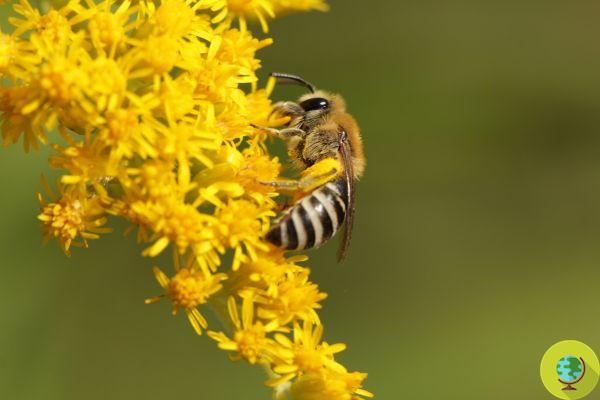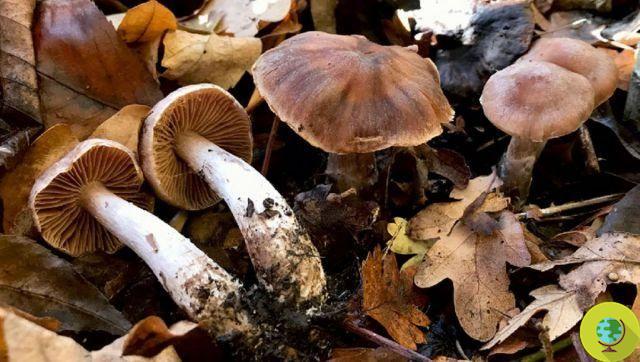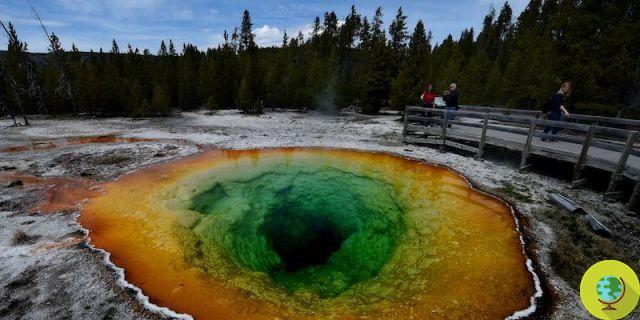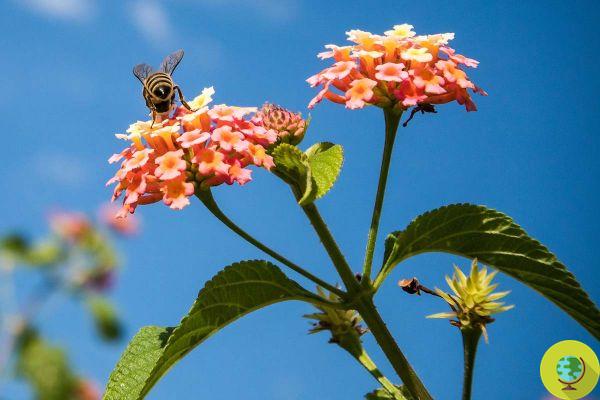
In a new study, solitary bees have shown unexpected sociability towards other species with which they share the habitat
He is about to end up run over, his mother saves himThat honey bees play a fundamental role for the environment and for man is now well known. Honey bees are in fact essential for pollinating wild flowers and in crops, allowing the reproduction of plant species that rely on entomophilic pollination.
As bees are severely threatened by human activities, in particular by the use of pesticides and monoculture, attention to these important insects is increasing sharply. Until now, however, scientists have focused mainly on honeybees that live in communities in hives, but in nature there are not only honey bees: most of the more than 20 thousand species of bees are in fact solitary and represent a great natural resource. to consider in landscape planning.
Read also:
How (and why) to host solitary bees in your garden?
Researchers from the University of Padua, together with those from Queen Mary University of London and the University of Oulu, Finland, conducted a study to understand in order to better understand the solitary bees and, in particular, their interactions with other pollinator species.
The study, recently published in the journal Animal Biology, revealed aunexpected sociability solitary bees.
Although this species does not have a social life, it has been very attentive to environmental information, especially the activities of other species in the same ecosystem.
"Most of the studies on bees concern the social species that live in the hive, where a queen resides together with the workers. What is not yet known is that most of the species of wild bees are solitary, that is" single mothers "in which each individual female builds its own nest, as well as being among the main pollinator species.
Although solitary bee species take care of their own nest, it is interesting that these nests are found in aggregations, often by several different bee species that reside in close proximity to each other ", explained Dr. Elia Gatto, researcher of the Department of General Psychology of the University of Padua.
Also, before building the nest, the solitary bees carefully inspect the place and have demonstrated one extraordinary intelligence in making their own assessments.
Researchers have in fact discovered that solitary bees are also able to remember the association between any symbols present near the nests and the state of the nest itself, managing to connect a symbol to the presence of parasites.
“In our study we find that before choosing where to build their nests, these bees carefully inspect other nests for clues that indicate the presence of parasites, to ensure that their own brood will not fall prey to these parasites.
If bees notice such signs, they tend to establish their own nesting sites further away. On the other hand, if the area appears to be safe, they tend to build nests next to it, ”concluded Gatto.
According to the researchers, the results of this new work should be sobering on the importance of this species which, although it is still little studied, has already shown that it offers an essential contribution for us and for the environment in which we live.
Read also:
- The bee is the most important living being on Earth (but maybe we didn't notice it)
- Bees: 4 surprising scientific reasons why humans cannot do without them
- If you don't reduce the use of pesticides for bees, it will be too late
- How the rise in cannabis cultivation in the US is saving bees. The studio you don't expect
- How and why the obsession with almond milk is killing bees in California
- Flowers and hedges in cultivated fields to increase agricultural production and reduce pesticides


























